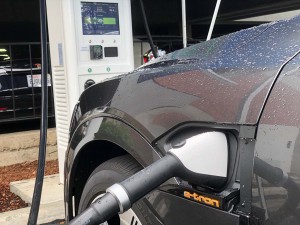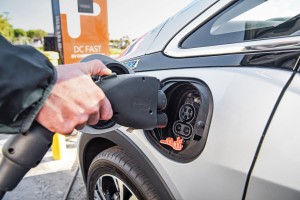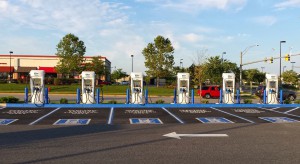
Colorado became the second state in the last week to make a deal directly with automakers to ensure tougher fuel economy and emissions standards are followed.
As the Trump administration prepares to formally move on its plans to cut the federal mileage and emissions standards, the move could become moot as more states work out deals of their own with the auto industry.
Colorado is the latest to strike a deal with automakers, following California’s move last week. On Monday, Colorado formalized a deal to adopt California’s zero-emission vehicle (ZEV) requirements after earlier talks had ended without a deal.
“This agreement will ensure that Coloradans have access to the range of clean car choices that are increasingly available to consumers in other states,” said Colorado Transportation Department Executive Director Shoshana Lew.
(Four Automakers Sidestep Trump, Make Fuel Economy Deal with CARB)
This time, General Motors, Volkswagen, Toyota and Hyundai agreed to terms on the program that starts with 2023 model-year vehicles. The deal permits automakers’ electric vehicle sales to earn them creditors toward the overall goals.
The program requires manufacturers to produce and deliver for sale a certain number of zero emission vehicles. The deal follows the path established by California’s deal with Ford, Honda, Volkswagen and BMW last week. Both were driven by the auto industry’s desire to have some clarity about the standards.
The Trump administration delayed its plans to implement a more lax standard about four weeks ago. There had been some rumblings it was prepared to move forward on the lesser rules, as well as eliminating California’s ability to set its own mandates, in recent days. However, for now, the administration is still spinning its wheels.
“The Trump Administration believes strongly in a national fuel standard that promotes safer, cleaner, and more affordable vehicles. The Federal government, not a single state, should set this standard,” White House spokesman Judd Deere told Bloomberg in an emailed statement. “We are moving forward to finalize a rule for the benefit of all Americans.”
Mary Nichols, who heads up the California Air Resources Board, said last week she hoped that the deal California reached would be seen as an olive branch by the Trump administration rather than the state thumbing its nose at Trump, the National Highway Traffic Safety Administration and the Environmental Protection Agency.
However, the it seems it was taken as a slight by the EPA, at least.
(Automakers Push Back on Trump Plans to Relax Mileage Rules)
“Today’s announcement from CARB has no impact on EPA’s regulation of greenhouse gas emissions under the Clean Air Act,” Michael Abboud, an EPA spokesman, said in an email to Bloomberg. “This voluntary framework is a PR stunt that does nothing to further the one national standard that will provide certainty and relief for American consumers.”
NHTSA officials added that work continues on a final rule with which all companies must comply.
In the meantime, the 18 states that said they would fight the Trump administration’s attempt to weaken the regulations saw another – Colorado – charge ahead with plans to ensure it gets the higher standard it desires. It did so by compromising with automakers and meeting some of their needs, such as infrastructure and a more moderate time frame for improvements.
“All of this was made possible by the fact that Colorado has one of the highest adoption rates of electric vehicles in the country as well as the largest electric vehicle incentives for consumers to buy or lease a ZEV,” said the Alliance of Automobile Manufacturers and the Association of Global Automakers in a joint statement.
The two groups represent nearly all of the automakers selling vehicles in the U.S. They noted the deal came together in part because the automakers saw the commitment from the state to ensure there would be a viable infrastructure for EVs.
“Colorado also has an expanding electric charging infrastructure, which will grow over the coming years based on legislation that was enacted earlier this year. Additionally, it is very helpful that the state has committed to developing a clean transportation plan to support the increased adoption and sale of ZEVs, including the state’s commitment to increase the number of ZEVs in its fleet of vehicles.”
(Trump Administration Rejects Carmakers Pleas on Emissions)
Colorado’s new rule must now be approved by the state’s Air Quality Control Commission at a meeting later this month.


